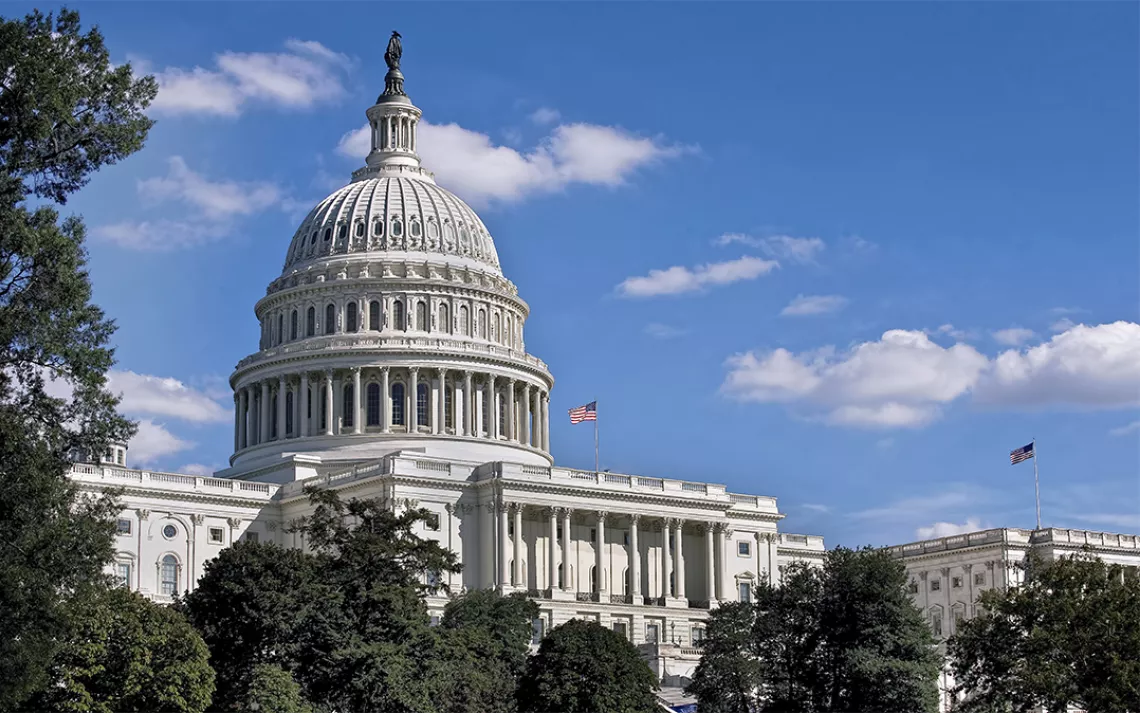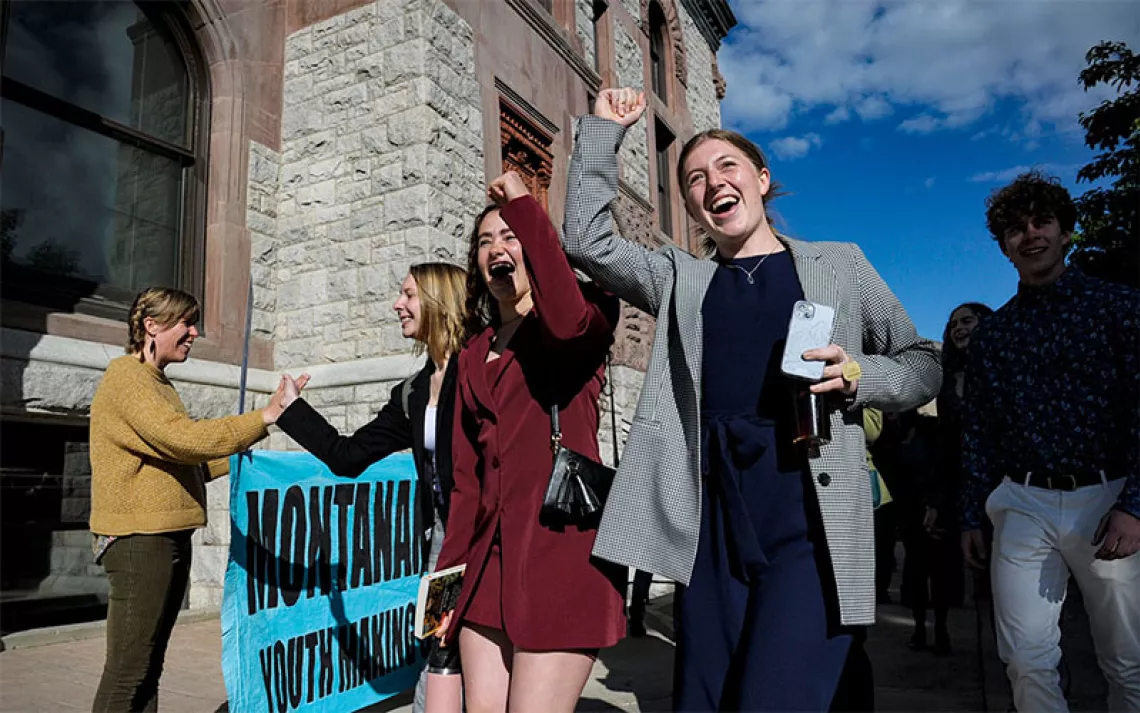Some Questions for Rex Tillerson
Trump’s secretary of state pick will face a Senate confirmation hearing on Wednesday. Here’s what I’d love to hear him talk about.

Photo by mj0007/iStock
Rex Tillerson didn’t get much R&R this past weekend. According to news reports, Donald Trump’s pick for secretary of state (along with other cabinet nominees) spent much of the weekend in mock confirmation hearings to prepare him for the grilling he is likely to experience when he goes before senators on Wednesday.
Democratic staffers on Capitol Hill and D.C. wonks at the nation’s environmental organizations didn’t get much rest, either, as they were busy preparing opposition briefs challenging whether the former CEO of ExxonMobil is an appropriate person to represent U.S. interests abroad. Environmentalists and some Democrats are determined to do anything they can to trip up Tillerson, whose cozy relationship with Russia’s Vladimir Putin has raised concerns, even among some Republicans, and made his nomination vulnerable.
Tillerson may be a Boy Scout, but that doesn’t mean he’s an angel. During Tillerson's decades-long employment at ExxonMobil, the company was implicated in corruption schemes in some of the countries in which it operates as well as human rights offenses, undermining U.S. foreign policy in the Middle East, and funding disinformation campaigns on climate change science.
While a lot of the questioning of Tillerson will likely focus on his Russian connections, environmentalists are hoping that climate hawks such as Senators Ed Markey (D-Mass.) and Jeff Merkley (D-Ore.) will ask him about his views on climate and the environment, important issues for a secretary of state in the era of global climate change.
Here are some of the questions (cribbed in part from sources in D.C., including the Sierra Club’s political staff) that I’d love to hear senators force Tillerson to address.
On Climate Change and U.S. Diplomacy
When the Paris Agreement went into effect in early November, ExxonMobil reiterated its support for the deal and in a statement declared that the “agreement is an important step forward by world governments in addressing the serious risks of climate change.” Evidently you believe that the climate accord serves the best interests of ExxonMobil and its shareholders. Do you agree or disagree that the Paris Agreement serves the best interests of the United States and its citizens?
President-elect Trump and other cabinet nominees such as Scott Pruitt and Rick Perry have expressed skepticism about the scientific consensus on global warming. As secretary of state, will you use your influence to convince the president and other cabinet members that climate change is, in fact, a serious risk to America’s global interests?
When ExxonMobil praised the Paris Agreement, was it also expressing its support for the United States’ nationally determined contribution (NDC) to reduce greenhouse gas emissions? How do you propose the United States meet its obligations under the Paris Agreement?
President-elect Trump has said he wants to “cancel” the Paris Agreement. When the United States pulled out of the Kyoto Accords, there was significant blowback from our allies. Since the U.S. was no longer viewed as a trusted partner on climate change, it made it more difficult to achieve other foreign policy objectives. Given the huge effort put into completing the Paris Agreement, a U.S. retreat from the agreement would likely damage the country's reputation and interests. Do you agree there would be diplomatic risks to withdrawing from the Paris Agreement?
The State Department’s most recent Quadrennial Diplomacy and Development Review, published in 2015, has a section titled “Preventing and Mitigating Climate Change,” which states, “We are already seeing the negative consequences of climate change, which is a national and global security threat.” Do you agree with that assessment? If not, why?
On Climate Science
The preindustrial level of atmospheric carbon dioxide was roughly 280 parts per million, according to scientists. Earth is now above 400 ppm of CO2. What level of atmospheric CO2 would you consider dangerous?
ExxonMobil is currently under investigation by the attorneys general of New York and Massachusetts because of well-documented claims that the company understood the science of human-driven climate change as early as the 1970s yet failed to disclose that information—a possible business risk—to shareholders and the public. When were you first briefed within Exxon on climate science and its implications for the company?
The New York attorney general’s investigation is focused on why Exxon failed to disclose the financial risks of climate change to the company’s shareholders. Why did the company decide not to be transparent with investors about the climate science conducted by your own internal researchers?
News reporting has revealed that Exxon spent millions of dollars over the decades—including as recently as 2015— to encourage skepticism about climate change. How was that in the best interest of the American public?
On Russia and Oil and Gas Policy
As secretary of state, would you reverse the current sanctions on Russia? How would you navigate the perception of conflicts of interest, given that ExxonMobil would then be able to move ahead with a $500 billion deal to develop oil and gas fields in the Russian Arctic?
Can you describe how the American people would benefit from removing sanctions against Russia? How many American jobs would be created by a partnership with the Russian oil firm Rosneft?
While you were the CEO of ExxonMobil, did you or other company staff ever discuss climate change science or climate change policy with Russian officials?
While you were CEO of ExxonMobil, was the company monitoring the retreat of Arctic sea ice as a way of forecasting when underwater oil and gas reserves there will be more readily available? Was the company monitoring the loss of sea ice along Russia’s Arctic Ocean coastline? Do you acknowledge that the retreat of sea ice has been driven by climate change?
On Human Rights
ExxonMobil is currently being sued in a U.S. district court in connection with alleged human rights abuses in the Indonesian province of Aceh—including allegations that company executives were aware of murders, rapes, and torture committed by security forces guarding a company pipeline. Given your leadership position at ExxonMobil, do you believe these allegations will undermine your ability to demand that other countries protect basic human rights?
The Commission on Human Rights of the Philippines is investigating ExxonMobil and other fossil fuel companies on the grounds that climate change may be contributing to human rights abuses there. As secretary of state, will you guarantee that the State Department will provide assistance to the Filipino commission as it conducts its investigation of ExxonMobil?
I’m cautiously optimistic that Senators Markey and Merkley—along with another staunch conservationist on the Senate Foreign Relations Committee, Tom Udall (D-N.Mex.)—will press Tillerson on topics such as these. The more pressing question is whether Tillerson will answer them forthrightly.
WHAT YOU CAN DO
Tell your senators to oppose Exxon CEO Rex Tillerson for secretary of state: sc.org/rextillerson.
 The Magazine of The Sierra Club
The Magazine of The Sierra Club



